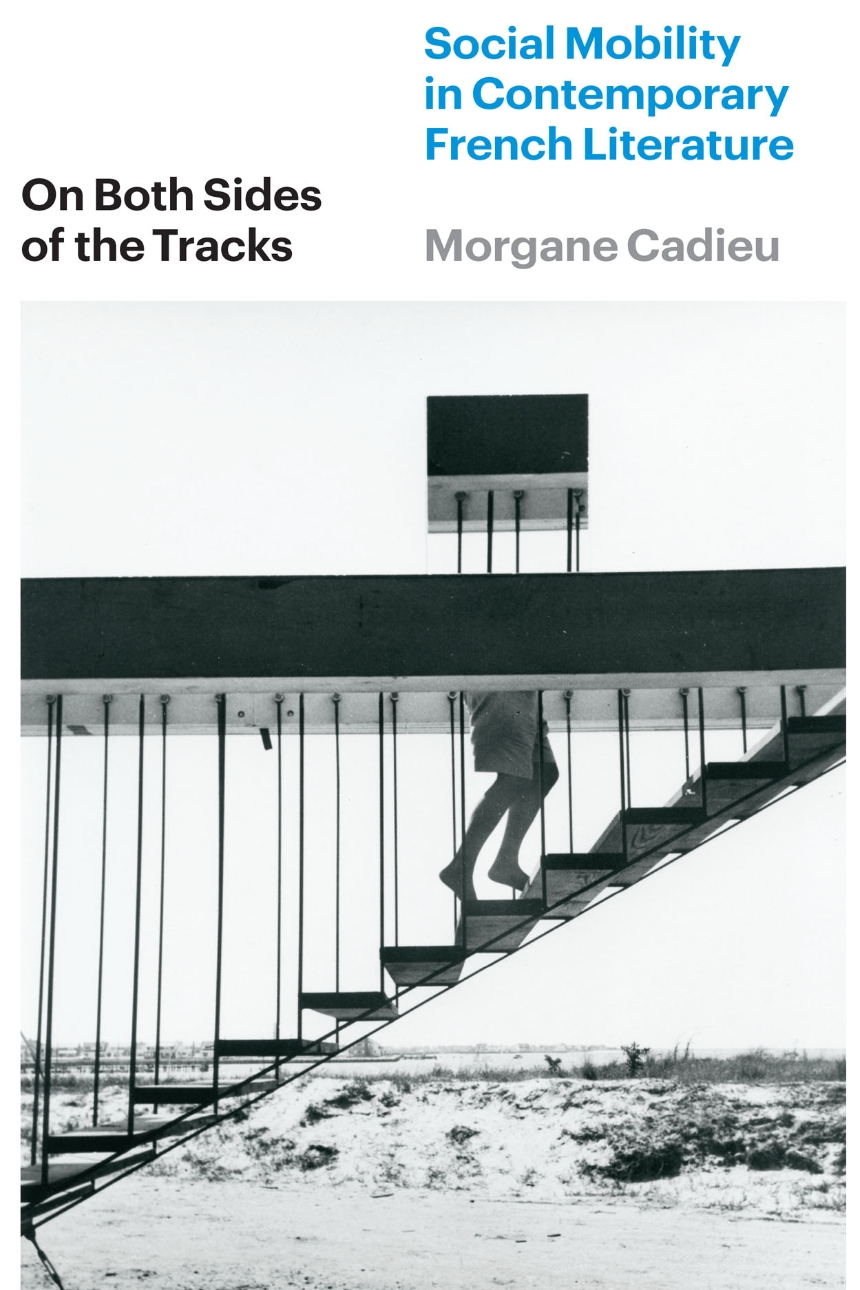On Both Sides of the Tracks
Social Mobility in Contemporary French Literature
9780226830360
9780226827124
9780226830353
On Both Sides of the Tracks
Social Mobility in Contemporary French Literature
An analysis of social mobility in contemporary French literature that offers a new perspective on figures who move between social classes.
Social climbers have often been the core characters of novels. Their position between traditional tiers in society makes them touchstones for any political and literary moment, including our own. Morgane Cadieu’s study looks at a certain kind of social climber in contemporary French literature whom she calls the parvenant. Taken from the French term parvenu, which refers to one who is newly arrived, a parvenant is a character who shuttles between social groups. A parvenant may become part of a new social class but devises literary ways to come back, constantly undoing any fixed idea of social affiliation.
Focusing on recent French novels and autobiographies, On Both Sides of the Tracks speaks powerfully to issues of emancipation and class. Cadieu offers a fresh critical look at tales of social mobility in the work of Annie Ernaux, Kaoutar Harchi, Michel Houellebecq, Édouard Louis, and Marie NDiaye, among others, shedding fascinating light on upward mobility today as a formal, literary problem.
Social climbers have often been the core characters of novels. Their position between traditional tiers in society makes them touchstones for any political and literary moment, including our own. Morgane Cadieu’s study looks at a certain kind of social climber in contemporary French literature whom she calls the parvenant. Taken from the French term parvenu, which refers to one who is newly arrived, a parvenant is a character who shuttles between social groups. A parvenant may become part of a new social class but devises literary ways to come back, constantly undoing any fixed idea of social affiliation.
Focusing on recent French novels and autobiographies, On Both Sides of the Tracks speaks powerfully to issues of emancipation and class. Cadieu offers a fresh critical look at tales of social mobility in the work of Annie Ernaux, Kaoutar Harchi, Michel Houellebecq, Édouard Louis, and Marie NDiaye, among others, shedding fascinating light on upward mobility today as a formal, literary problem.
362 pages | 6 halftones | 5 1/2 x 8 1/2 | © 2024
Literature and Literary Criticism: Romance Languages
Reviews
Table of Contents
Note on Citations
Introduction: The Parvenant
1 Rastignac Redux
2 The Muddy Parvenant, Then and Now
3 The Transient Body of the Transclass
4 Self-Maid? The Social Mobility of Literary and Cinematic Servants
5 A Foot in the Door: Passing on Social Mobility
6 Travel Class: From the Ladder to the Train
7 From Rastignac to Subutex: The Immobilization of the Fictional Character
Conclusion: A Demoted Canon
Acknowledgments
Notes
Works Cited
Index
Introduction: The Parvenant
1 Rastignac Redux
2 The Muddy Parvenant, Then and Now
3 The Transient Body of the Transclass
4 Self-Maid? The Social Mobility of Literary and Cinematic Servants
5 A Foot in the Door: Passing on Social Mobility
6 Travel Class: From the Ladder to the Train
7 From Rastignac to Subutex: The Immobilization of the Fictional Character
Conclusion: A Demoted Canon
Acknowledgments
Notes
Works Cited
Index
